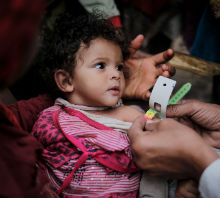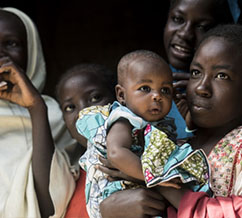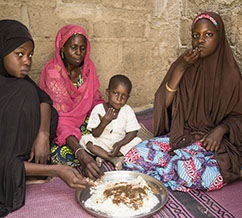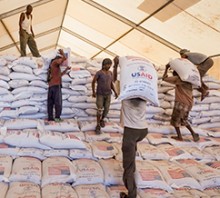Speeches Shim
The Government of Nigeria (GoN) Ministry of Agriculture and Rural Development (MoARD), in partnership with the UN Food and Agriculture Organization (FAO), UN World Food Program (WFP), and other relief agencies, recently released an updated Cadre Harmonisé report—a multi-sector food security and nutrition analysis—for 16 Nigerian states and the Federal Capital Territory.
UN Under-Secretary-General and Emergency Relief Coordinator (ERC) Mark Lowcock traveled to Yemen from October 23–27 to meet with Republic of Yemen Government (RoYG) officials in the city of Aden and Al Houthi officials in the capital city of Sana’a. ERC Lowcock encouraged greater coordination of humanitarian activities and urged parties to the conflict to ameliorate Yemen’s challenging operational environment, particularly bureaucratic impediments and disruptions to humanitarian operations.
Armed actors continue to target civilian populations across the Lake Chad Basin region. Three late October attacks near Borno’s capital city of Maiduguri resulted in at least 13 civilian deaths and nearly 20 injuries, according to international media. In addition, the UN reports that a mid-September attack in Cameroon’s Far North Region displaced nearly 1,700 people within Mayo-Tsanaga Department.
On September 21, the U.S. Government (USG) announced more than $283.6 million in additional humanitarian funding for the South Sudan response. During FY 2017, the USG provided nearly $746 million in emergency assistance inside South Sudan, as well as approximately $246 million in life-saving assistance for South Sudanese refugees in neighboring countries.
As of September 30, health agencies had recorded nearly 772,000 suspected cholera cases and 2,132 related deaths since the outbreak resurged in late April, according to USAID/OFDA partner the UN World Health Organization (WHO). USG partners continue to distribute cholera prevention supplies, such as water purification tablets; establish additional cholera treatment centers (CTCs) and oral rehydration centers (ORCs); and provide safe drinking water to vulnerable populations.





Comment
Make a general inquiry or suggest an improvement.